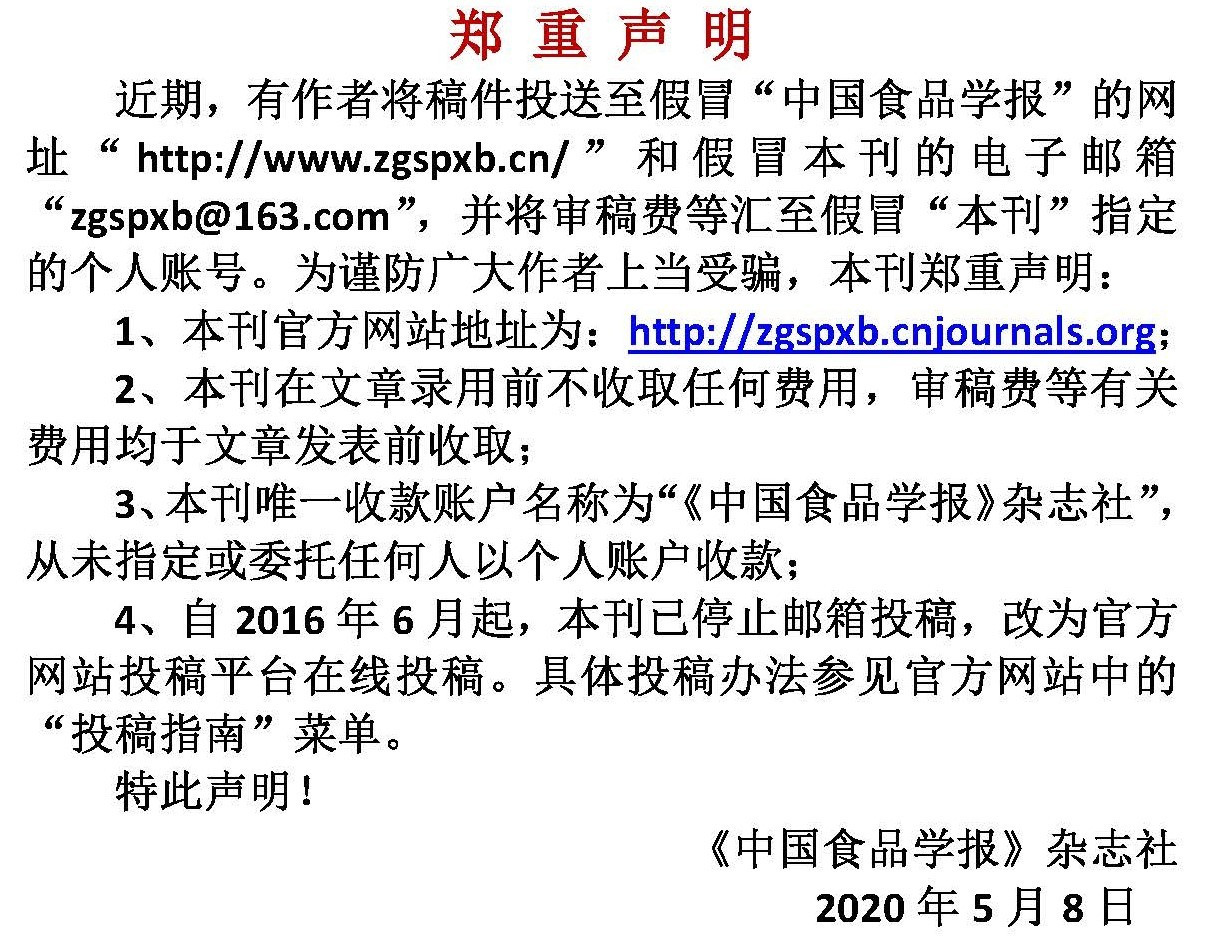3种黄酮类化合物对胰脂肪酶的抑制作用及其结合机制
作者:
作者单位:
(渤海大学食品科学与工程学院 辽宁省食品安全重点实验室生鲜农产品贮藏加工及安全控制技术国家地方联合工程研究中心 辽宁锦州 121013)
作者简介:
通讯作者:
中图分类号:
基金项目:
教育部中外语言交流合作中心2021国际中文教育创新项目(21YH009CX5)
Inhibitory Effects of Three Flavonoids on Pancreatic Lipase and Their Binding Mechanism
Author:
Affiliation:
(College of Food Science and Technology, Bohai University, Food Safety Key Lab of Liaoning Province, National & Local Joint Engineering Research Center of Storage, Processing and Safety Control Technology for Fresh Agricultural and Aquatic Products, Jinzhou 121013, Liaoning)
Fund Project:
引用本文
张炎,康柱,苏冬雨,张瀛心,班晨宇,刘祎,周素珍,范金波.3种黄酮类化合物对胰脂肪酶的抑制作用及其结合机制[J].中国食品学报,2024,24(7):60-69
复制分享
文章指标
- 点击次数:
- 下载次数:
- HTML阅读次数:
历史
- 收稿日期:2023-07-05
- 最后修改日期:
- 录用日期:
- 在线发布日期: 2024-08-22
- 出版日期:
文章二维码

版权所有 :《中国食品学报》杂志社 京ICP备09084417号-4
地址 :北京市海淀区阜成路北三街8号9层 邮政编码 :100048
电话 :010-65223596 65265375 电子邮箱 :chinaspxb@vip.163.com
技术支持:北京勤云科技发展有限公司
地址 :北京市海淀区阜成路北三街8号9层 邮政编码 :100048
电话 :010-65223596 65265375 电子邮箱 :chinaspxb@vip.163.com
技术支持:北京勤云科技发展有限公司
